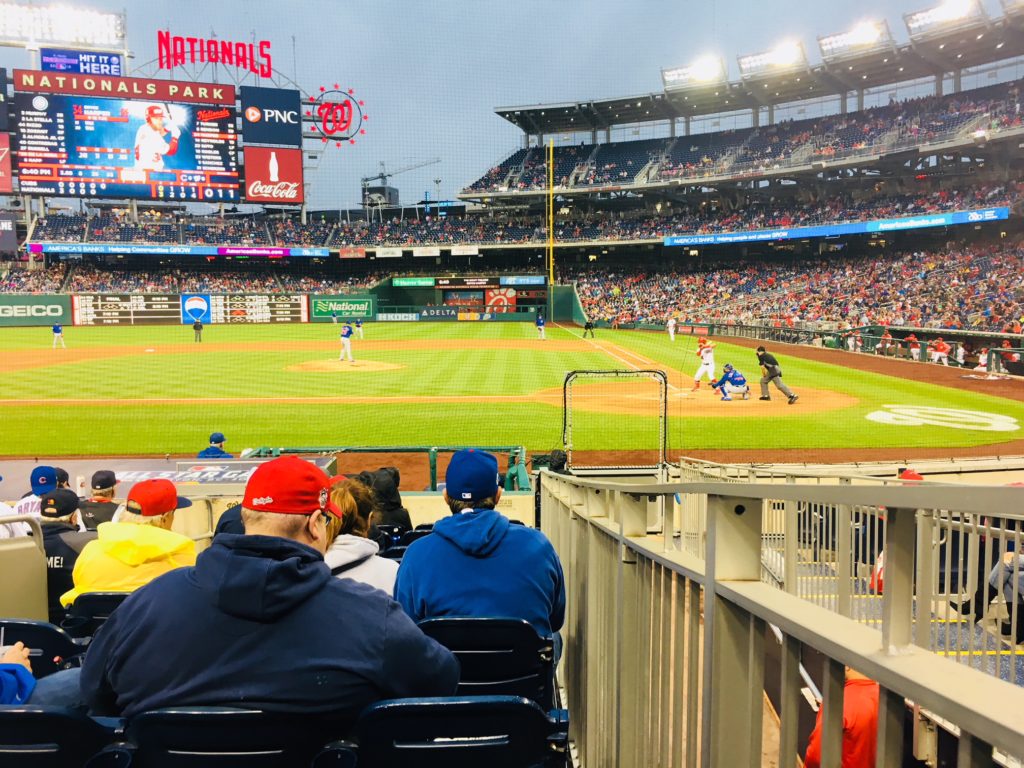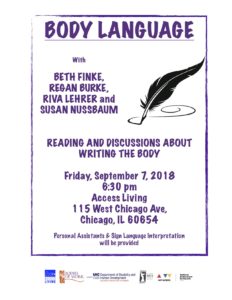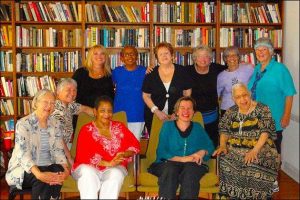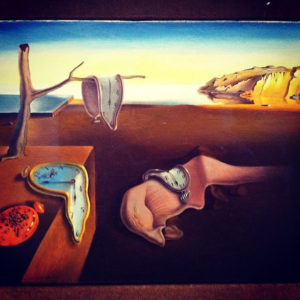Mondays with Mike: Luckily, some things never change
September 10, 2018 • 5 Comments • Posted in Mike Knezovich, Mondays with Mike
Nationals Park was nice, even in the rain. And the seats were great. (Thanks Michael B.)
Last week I wrote while riding the Amtrak train home from Milwaukee, today it’s from row 15 on a Southwest Airlines flight, headed home from a wet but fun-packed weekend in Alexandria, Virginia.
The flight to DC was a little trying—the turbulence was constant, and bad enough that the flight attendants couldn’t bring passengers the pretzels and a drink. As we descended, we made a final bank left and then boom, a big bump that left my stomach in my mouth for a moment.
I stayed with Pick and Hank, longtime friends whom I’ve posted about before. Friday night we went to the home of our mutual pals’ Mike and Susi, who hosted a grand dinner of charcuterie, two kinds of steak, vegetables and yes, some libations. (I wasn’t driving.)
Saturday night Mike and Susi treated me and Pick to a Washington Nationals game. It could’ve been two games, because the previous night’s game was rained out, and our ticket got us into the rescheduled rainout plus the original Saturday night game.
Except.
It rained all day Saturday, too. The rainout had been scheduled for 3:00, with the second game scheduled to start at 7:00. For the longest time, we couldn’t tell what was going on—I finally found confirmation on the Nationals Twitter feed that the first game was going start around 5:30.
Rain was pretty much forecast for the entire evening and weekend, and I wanted to at least see Nationals Park for the first time, so we drove to nearby subway stop and then took the Metro to the park.
For several innings, it was really pleasant. Our seats were fantastic, just to left of home plate and just high enough to give great perspective. And I got to see Max Scherzer—one of the best—pitch. He did not disappoint. The Nationals’ opponent, the Cubs, were not at their best, booting the ball around and generally looking tired (they’ve been on the road a long time). I was easy on the nearby Cub fans—many looked like drowned rats. Rain delays at ballparks can be miserable.
When the rain picked up again in the bottom of the seventh, we decided to head home. I’d had a banh mi hot dog (honest, and it was really good), a cold beer, walked the park (very nice, indeed), and the score was 8-0 Nasty Nats. My work there was done.
It rained again Sunday so Pick and I headed to the newish MGM casino that’s just on the other side of the Potomac River from Alexandria. There’s also a giant convention hall/hotel complex there, with a sort of popup town that wasn’t even there just a few years ago. Pick and I people watched, fed some penny slot machines, had some dumb fun and headed back when that crazy casino background noise started getting too disorienting.
Last week I wrote about how time seems to be flying. So much has changed in the Washington area since I lived there in the late 70s and early 80s. And it’s not slowing down. Construction cranes are everywhere. Those years have flown by.
But the time I spend with these dear friends, well, it feels like it always has and always will–timeless.


